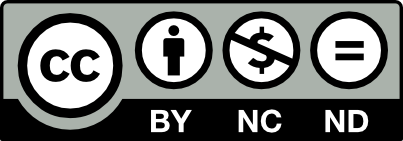Game Theory: when Mathematics meets Systems Psychology
DOI:
https://doi.org/10.23823/jps.v1i1.10Parole chiave:
Teoria Generale dei sistemi, Game TheoryAbstract
In this paper, our goal is to draw a connection between Systems Psychology and Game Theory. To this aim, we first describe some of the main concepts of these theories, and then we compare them. In particular, we feel very useful and inspiring the connection between the rules of a system and the equilibria of a game. To enlighten the power of this connection, we review a clinical case under the lens of Game Theory. We conclude the work suggesting other possible connections that may exist between these two theories.Downloads
Riferimenti bibliografici
Aumann R. J. (1974), Subjectivity and correlation in randomized strategies, Journal of Mathematical Economics, 1(1):67-96
Aumann R. J. et al., (1992), Handbook of Game Theory with Economic Applications, volume 1. Elsevier
Aumann R. J. et al., (1994), Handbook of Game Theory with Economic Applications, volume 2. Elsevier
Aumann R. J. et al., (2002), Handbook of Game Theory with Economic Applications, volume 3. Elsevier
Bateson G., (1972) Steps to an Ecology of Mind: Collected Essays in Anthropology, Psychiatry, Evolution, and Epistemology, University of Chicago Press
Bernheim B. D., Peleg B., and Whinston M. D.,. (1987), Coalition-proof Nash equilibria i. concepts, Journal of Economic Theory, 42(1): 1-12
Bowen M, Andolfi M., De Nichilo M., (1979), Dalla famiglia all'individuo: la differen-ziazione del se nel sistema familiare. Psiche e coscienza: collana di testi e documenti per lo studio della psicologia del profondo, Astrolabio
Ed Carter B., Ed McGoldrick M., (1988), The changing family life cycle: A framework for family therapy, Gardner Press
Driessen T., (1988), Cooperative games, solutions and applications, Springer Science & Business Media
Fudenberg D., K. Levine, (1998), The Theory of Learning in Games, MIT
Fudenberg D.,Jean Tirole, (1991),Game theory, MIT Press
Galam S., Walliser B., (2010), Ising model versus normal form game Physica A: Statistical Mechanics and its Applications, 389(3):481-489
Gigerenzer G., Selten R., (2002) Bounded Rationality: The Adaptive Toolbox, Dahlem Konferenzen, MIT Press
Guttman H. A., (1991), Systems theory, cybernetics, and epistemology. Handbook of family therapy, 2:41-62
Jackson Don D., (1965), Family rules: Marital quid pro quo, Archives of General Psychiatry, 12(6):589-594
Koutsoupias E., Papadimitriou C. H., (2009), Worst-case equilibria. Computer Science Review, 3(2):65-69
Levin H., Schapira M., Zohar A., (2008), Interdomain routing and games, In STOC, pages 57-66
Leyton-Brown K., Shoham Y., (2008), Essentials of Game Theory: A Concise, Multidisciplinary Introduction. Synthesis lectures on artificial intelligence and machine learning, Morgan & Claypool Publishers
Lorenz J., Rauhut H., Schweitzer F., Helbing D., (2011), How social influence can undermine the wisdom of crowd effect, Proceedings of the National Academy of Sciences, 108(22):9020-9025
Smith J. M.,.(1982), Evolution and the theory of games. Cambridge University Press
Minuchin S., (1974), Families and family therapy, Harvard University Press
Moreno D., Wooders J., (1996), Coalition-proof equilibrium. Games and Economic Behavior, 17(1):80-112
Myerson R. B., (2013), Game Theory, Harvard University Press
Nash J., (1951), Non-Cooperative Games. The Annals of Mathematics, 54(2):286-295
Von Neumann J., (1928), Zur theorie der gesellschaftsspiele, Mathematische Annalen, 100(1):295-320,
Von Neumann J., Morgenstern O., (1944), Theory of Games and Economic Behavior, Princeton University Press
Osborne M. J., Rubinstein A., (1994), A Course in Game Theory, MIT Press
Rubinstein A., (1997), Modeling Bounded Rationality, The MIT Press
Sandholm W. H., (2010), Population games and evolutionary dynamics, MIT press
Simon F. B., Stierlin H., C. Wynne L. C.,. (1985), The language of family therapy: a systemic vocabulary and sourcebook, Family Process Press Series. Family Process Press
Tucker A. W., Luce R. D., (1959) Contributions to the Theory of Games, Number v.4 in Annals of mathematics studies. Princeton University Press
Von Bertalanffy L.,(1952) Problems of life: an evaluation of modern biological thought
Von Bertalanffy L., (1969), General System Theory: Foundations, Development, Applications, George Brazilier
Watzlawick P., Bavelas J. B., Don D. Jackson, O'Hanlon B., (2011), Pragmatics of human communication: A study of interactional patterns, pathologies and paradoxes, WW Norton & Company
Whitaker C. A., Vella G.,Trasarti Sponti W., (1984), Il gioco e l'assurdo. La terapia esperienziale della famiglia. Psiche e coscienza, Astrolabio Ubaldini
Wiener N., (1948), Cybernetics: or, Control and communications in the animal and the machine. Actualites scientifiques et industrielles. Herman
Dowloads
Pubblicato
Fascicolo
Sezione
Licenza
Gli autori che pubblicano su questa rivista accettano le seguenti condizioni:
- Gli autori mantengono i diritti sulla loro opera e cedono alla rivista il diritto di prima pubblicazione dell'opera, contemporaneamente licenziata sotto una Licenza Creative Commons - Attribuzione che permette ad altri di condividere l'opera indicando la paternità intellettuale e la prima pubblicazione su questa rivista.
- Gli autori possono aderire ad altri accordi di licenza non esclusiva per la distribuzione della versione dell'opera pubblicata (es. depositarla in un archivio istituzionale o pubblicarla in una monografia), a patto di indicare che la prima pubblicazione è avvenuta su questa rivista.
- Gli autori possono diffondere la loro opera online (es. in repository istituzionali o nel loro sito web) prima e durante il processo di submission, poichè può portare a scambi produttivi e aumentare le citazioni dell'opera pubblicata (Vedi The Effect of Open Access).









